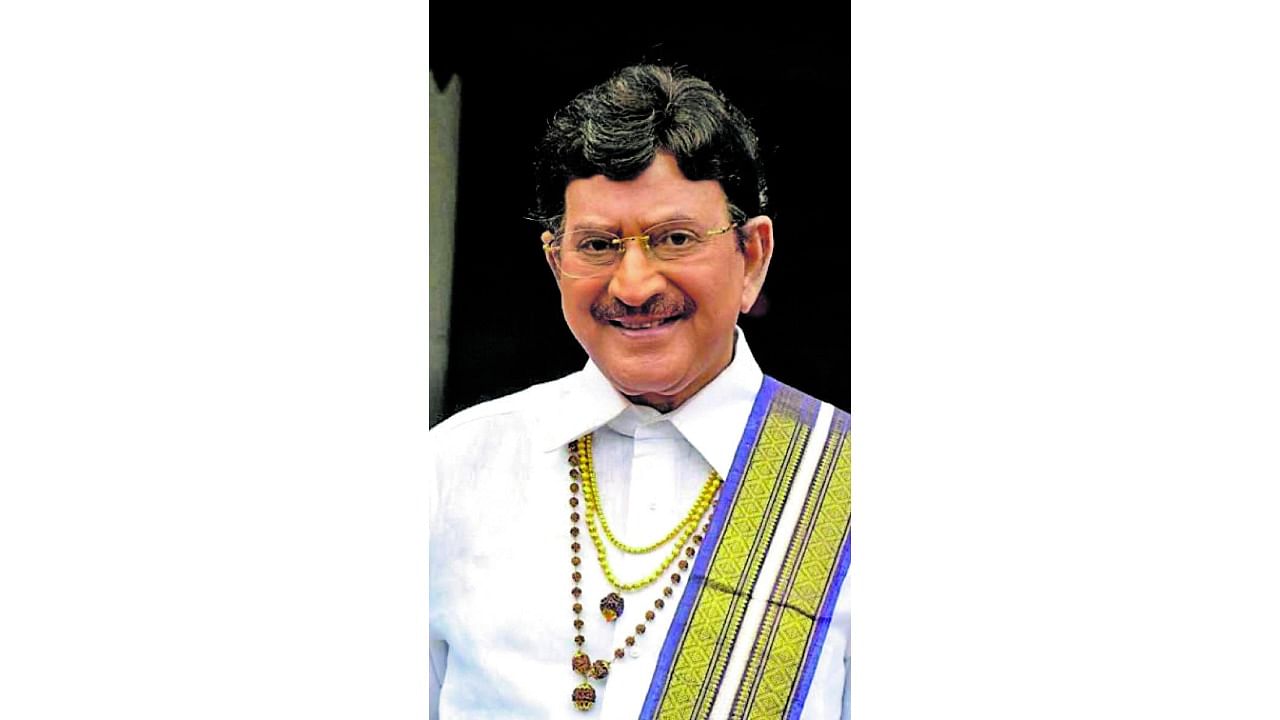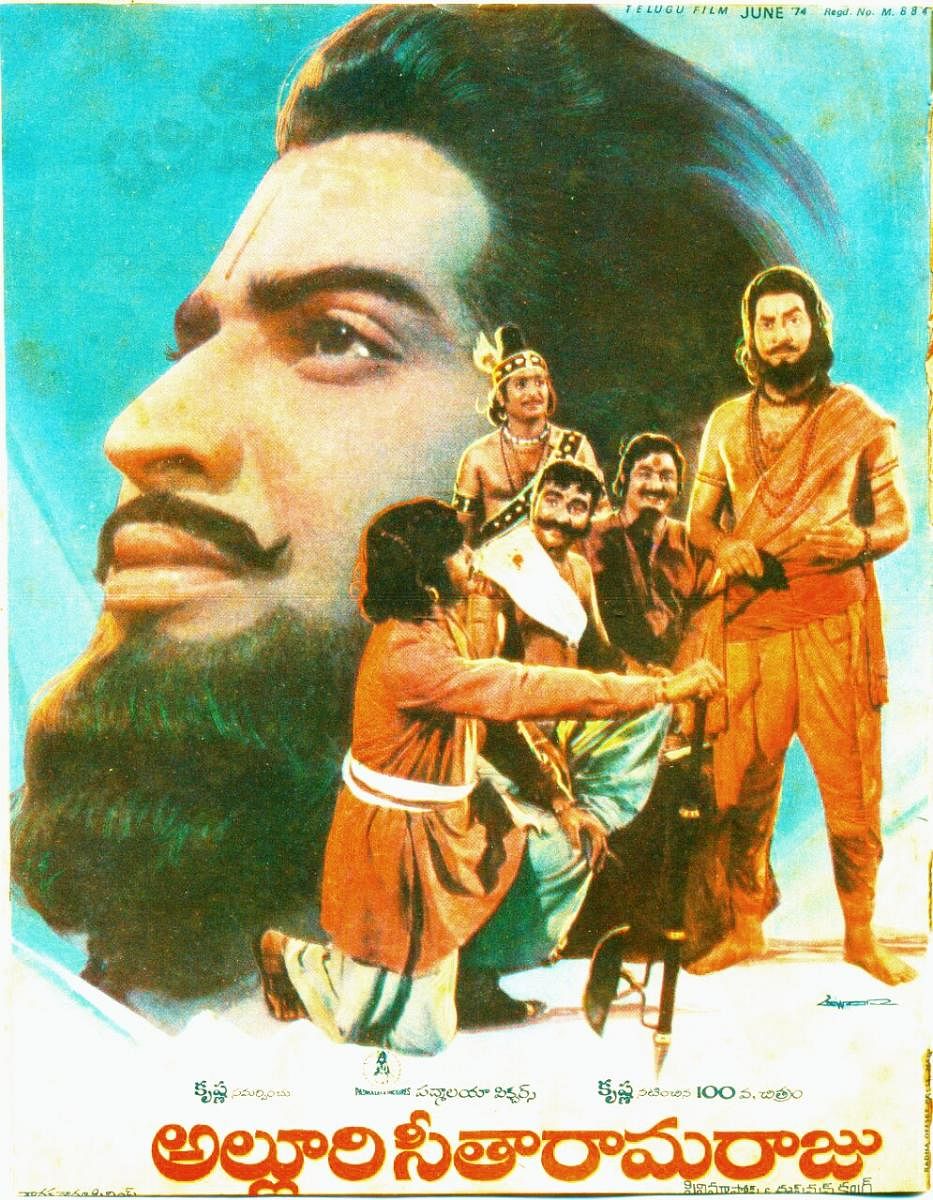

In the 2007 comedy movie ‘Dubai Seenu,’ MS Narayana plays an action hero who’s bestowed with the title ‘Fire Star’. He calls himself a single-take artist and throws tantrums at the slightest grain of inconvenience. But what really makes his presence a hoot is his inability to perform according to the instructions given by the on-screen director. Narayana aces his part by borrowing Krishna’s sing-song voice.
Krishna, though, is not talentless; he’s a multi-hyphenate (actor, producer, director). He created a path for himself at a time when Telugu cinema was being ruled from all corners by NT Rama Rao and Akkineni Nageswara Rao. The Raos, among themselves, held on to their cinematic posts for a better portion of the 20th century. While the former moved the masses with his impeccable turns as the quintessential action star, the latter often delivered self-pitying monologues as though he hated everybody and everything around him. Both of them, however, excelled in roles that demanded nothing much from them other than their polite smiles and boyish sense of humour. Krishna had all those qualities – he could yell as if his entire existence depended on it (as in ‘Alluri Sithramaraju’) and he could also dole out romantic comments casually (‘Antha Mana Manchike’). And, unlike the Raos, he wasn’t stressing on the syllables, which made his diction seem untheatrical and, as a result, credible. His handsomeness was obviously an advantage and he put it to great use in several films where his main job was to present himself as the most eligible bachelor.
In ‘Alluri Sitaramaraju,’ he portrayed the role of a rebel with a cause by stepping into the shoes of the eponymous protagonist who brings the tribals together in order to lead a revolt against the British. Raju’s penchant for freedom matched Krishna’s fervour and his almost faultless performance put him on top of the ranks. But he had scored numerous hits even before he arrived at the doorstep of ‘Alluri.’ In the beginning stages of his career, he starred as a spy in ‘Goodachari 116,’ a thoroughly enjoyable thriller, in which he wore dapper suits and ran after gangsters with a handgun.
The success of the movie encouraged him to wield the gun for many other thrillers that fell under the same category. The series, which was unquestionably inspired by the James Bond narratives, caused a ripple effect that continues to enthral the viewers today; there’s even a 2018 version of ‘Goodachari,’ starring Adivi Sesh and Sobhita Dhulipala. As a spy, Krishna had no competitors in the Telugu land.
Then he found another green patch in the form of Western actioners where he rode horses (‘Mosagallaku Mosagadu,’ ‘Monagadu Vasthunadu Jagratha,’ ‘Manchivallaku Manchivadu’). His son, Mahesh Babu, tried to revive the genre with ‘Takkari Donga’ two decades ago, but it didn’t have the panache to fly high.
And in a number of films, he starred alongside his wife, Vijaya Nirmala. Their relationship, on and off the screen, was pretty fruitful. Nirmala would also rope him in for her directorial ventures, such as ‘Meena’ and ‘Ram Robert Rahim,’ every now and again. In the late 1990s, he started cutting down on his projects and even traded his cowboy hats for supporting characters.
Although it can be argued that Mahesh Babu clawed his way to stardom through his own efforts (as a lead), Krishna’s gentle shadow can never be erased from Babu’s filmography. Krishna was a star who poured life into a few genres that were considered risky. And, for the record, he enjoyed the hat tips and parodies that were made in his name (a fact attested by Narayana himself). He was a celebrity who lived his life to the fullest.